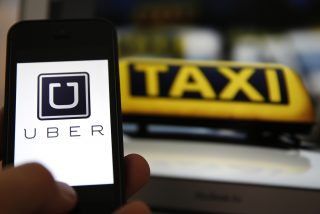Uber faces a class action suit by its clients in South Africa in what proves to be another major challenge for the company since its launch in Africa six years ago.
The class action stems from criminal and civil suits involving eleven plaintiffs – customers who were allegedly harmed, suffered physical injuries and emotional trauma while using the transport service.
They are represented by Ulrich Roux Attorneys, with a team of lawyers drafting an application to have the case certified as a class action, and will pursue a damages claim at the High Court.
According to the charge sheet, the plan hatched by the accused was for one of them to pose as an Uber taxi driver and pretend to be the driver who received the victim’s Uber request.
In most of the cases, the other accused would emerge from the boot of the car, through the back seat, and attack the victims, stabbing and raping them in all cases but one, which was an attempted rape. The victims were also robbed of their belongings and made to tell the accused their bank account details.
In the civil case, Roux said that eight people had come forward wanting to claim damages from Uber for incidents that took place while they were using the service.
More so, four men are currently facing trial on a number of criminal charges including rape, attempted rape, kidnapping, robbery with aggravating circumstances and attempted murder. They allegedly attacked five Uber users between July and August 2016.
Roux revealed that the legal team believes that Uber had “vicarious liability” in these incidents, as it advertised the service as safe and reliable to use.
“Our thoughts remain with the riders affected by these incidents,” Uber told News24 regarding the issue. However, it failed to comment on the case as it had not commenced yet.
Such controversy is not exactly new to Uber, having previously faced multiple complaints from users, protests by associations, unions and several lawsuits of different claims in various cities where it operates.
In 2016, around 500 Uber drivers in South Africa joined the South African Transport and Allied Workers’ Union (SATAWU) to initiate legal action against the firm over working conditions. While it faced a lawsuit from its drivers in Nigeria over employee status and benefits such as health insurance and pensions. The company has had legal problems internally too.
Last year, it agreed to pay $1.9 million to settle a case with former and current employees claiming sexual harassment as well as female and minority engineers claiming discrimination.
“As soon as these incidents were reported we reached out to local authorities and whatever information we could provide was handed over to the police and it was this close collaboration that led to the arrest of the suspect. In cases of this nature we work closely with police to support their investigations,” Uber explained in a statement on Thursday.
The taxi service further clarified that since the incidents happened, it had undertaken to improve its verification process and safety features for riders and drivers.








